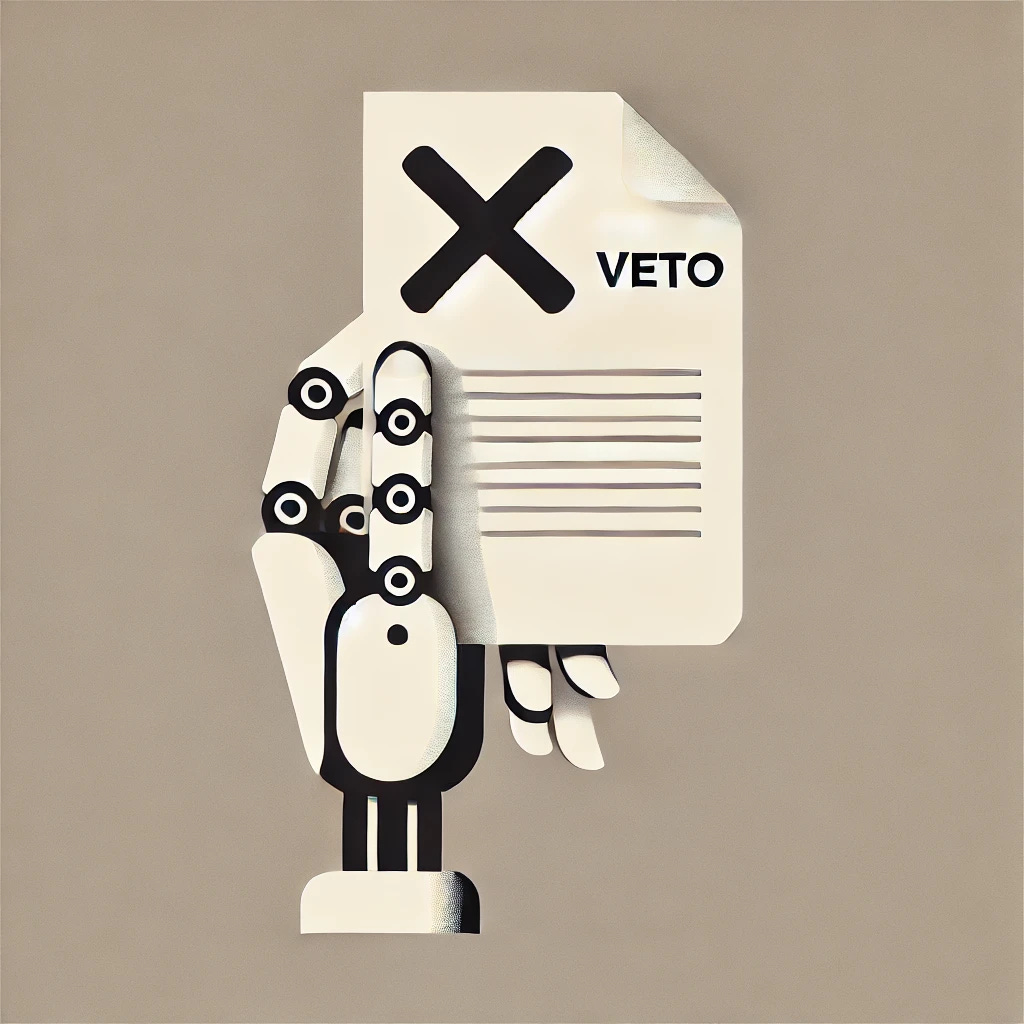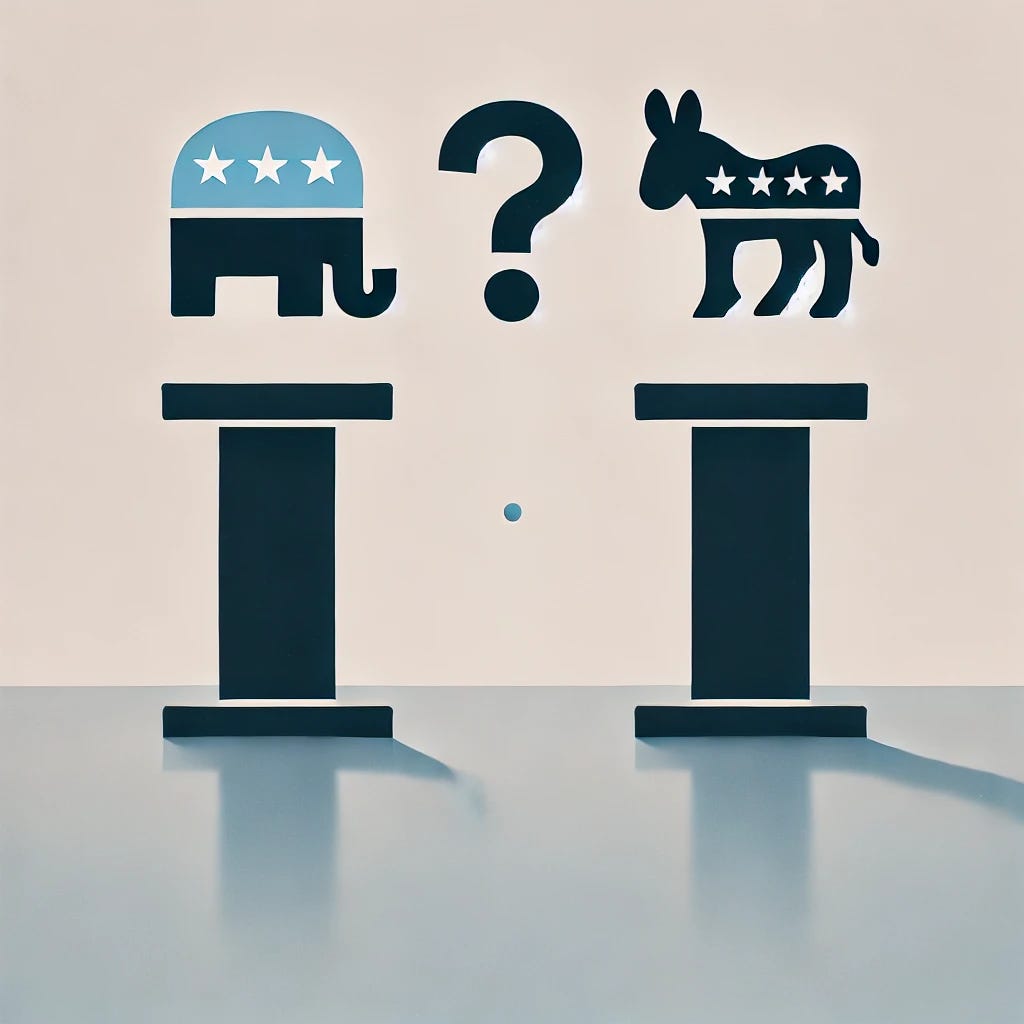297. Interest Rates, Job Market, and AI Innovation | This Week's Economy Ep. 81
Key insights on tax reform, energy competition, and election issues.
Hello Friends!
In episode 81 of This Week's Economy, I discuss the Federal Reserve's looming decision on interest rates, the shifting dynamics in the U.S. labor market, California Governor Newsom's veto on AI regulation, and more. For paid subscribers, find in-depth analyses below the paywall. Watch the episode on YouTube below, listen to it on Apple Podcast or Spotify, and visit my website for more information.
1. US JOBS REPORT INDICATES UNCERTAINTY
In the News: The latest jobs report shows that private sector employment increased by 223,000 jobs in September, with an additional 31,000 government jobs. Despite these gains, the unemployment rate held steady at 4.1%, signaling ongoing volatility in the U.S. economy. However, inflation-adjusted weekly earnings have dropped by about 3% since January 2021, highlighting underlying economic fragility. Source: CNBC.
My Take:
The Federal Reserve’s recent rate cuts were premature and could worsen economic instability. Here’s what should be done:
Avoid Further Rate Cuts: The Fed should refrain from further reducing rates and instead focus on long-term stability to avoid inflationary pressures.
Cut Government Spending: Congress must address the root cause of instability—excessive government spending—and prioritize fiscal responsibility.
Let Free Markets Thrive: Government intervention distorts the market. Reducing unnecessary expenditures will empower the private sector to drive sustainable economic growth.
2. MORE INTEREST RATE CUTS?
In the News: A new survey of economists predicts that a “monetary policy mistake” is the “greatest downside risk to the U.S. economy over the next 12 months.” The Federal Reserve is expected to cut rates again at its November meeting, either by a quarter or half a percentage point. Source: Investing.com
My Take:
Repeating Past Mistakes: The Federal Reserve’s recent decision to cut the federal funds rate by 50 basis points to a range of 4.75% to 5%, despite inflation remaining above its 2% target, echoes the policy errors of the late 1970s.
Further Cuts: Additional rate cuts would be a significant mistake and cause for concern. The Fed seems willing to sacrifice long-term price stability for short-term gains, which could lead to more aggressive corrective measures.
Solution: Instead of relying on interest rate cuts, the Fed should prioritize aggressively reducing its balance sheet. Combined with reduced government spending, this approach would help absorb the excess liquidity contributing to inflationary pressures. (My latest AIER article on this.)
3. AMERICAN CONCERN ABOUT JOBS
In the News: Consumer confidence dropped sharply in September, marking the largest decline since August 2021. America’s pessimism has transitioned from inflation to jobs. This trend aligns with the recent rise in the unemployment rate and the decline in job openings. The labor market is noticeably cooler than it was before. Instead of the “Great Resignation” when workers leave their jobs for new ones with higher salaries, we are in the “Great Stay” as fewer people are switching jobs. Source: Business Insider
My Take:
Tough Labor Market: The latest jobs report showed a weakening labor market and slowing economy, with only 142,000 new jobs created.
Fed Can't Control Jobs: The Federal Reserve should avoid cutting interest rates too quickly to prevent a 1970s-style resurgence of inflation. The Fed’s tools are designed to manage inflation, not employment. Using rate cuts to support jobs risks mismanaging inflation and destabilizing the economy.
Solution: Strengthening the economy will naturally improve the job market and benefit job seekers. Congress should focus on reducing spending, regulation, and taxation to promote real, sustainable growth. Both political leaders must prioritize pro-growth policies over government handouts and economic intervention.
4. CA GOVERNOR NEWSOM VETOES AI BILL
In the News: California Governor Gavin Newsom has vetoed a proposed AI bill to establish new safety regulations for the rapidly evolving technology. Newsom expressed concern that the bill’s focus on large-scale, expensive models could give the public a “false sense of security” about controlling AI. However, his objection wasn’t rooted in a belief that California should avoid legislation with national implications. Source: The Hill
My Take:
Regulatory Impact: It’s encouraging to see this bill vetoed, even if I don’t fully agree with Governor Newsom’s reasoning. While AI safety is critical, any regulation must be carefully considered to avoid stifling innovation and harming our competitive edge.
Embracing Disruption: The rise of AI presents a unique opportunity for society to address challenges and seize new opportunities. The future belongs to those who can innovate and adapt. AI should be embraced, not feared.
Global Competitiveness: To maintain leadership in AI, the U.S. must welcome disruptive innovation and foster a competitive environment. Attempting to pause AI advancements is unrealistic given the rapid pace of global progress, particularly from countries like China and the UAE, where big tech competitors are moving forward without the constraints of excessive regulation.
5. PRESIDENTIAL CANDIDATES SET CAPS, IGNORE DEFICIT
In the News: President Trump is considering capping credit card interest rates, while Kamala Harris’s latest economic plan targets “price gouging.” Trump’s proposal would temporarily cap credit card interest rates at less than half their current level. However, neither candidate has seriously discussed the federal deficit in their rhetoric. Many of their proposals would increase the deficit, and the media is starting to take notice. Sources: CNN, CNBC, CNN, and Washington Post
My Take:
Good Intentions, Poor Policy: Both candidates may have good intentions to help struggling Americans, but their approaches are misguided. Proposals like these—capping interest rates and setting price controls—evoke heavy-handed interventions seen in economies like Soviet Russia or China.
Government Intervention: These are classic examples of government interference distorting markets and making it harder for everyday Americans. Subsidies and tax carve-outs from both candidates only expand government control, crowding out private investment and innovation.
Solution: Instead of choosing which households benefit, the next president should reduce taxes for all Americans by extending the Tax Cuts and Jobs Act and enacting additional tax cuts tied to spending restraint. They must also tackle government overspending, a primary driver of rising prices.
6. SMALL BUSINESSES BACK GOOGLE
In the News: Small businesses warn they will be harmed if the federal government succeeds in its antitrust case against Google over online advertising tools. The case, launched by the DOJ in 2023, seeks to dismantle Google’s Ad Manager suite. Source: Inc.
My Take:
Argument: The antitrust crackdown claims Google is using its ad tools to create a monopoly and drive up costs. However, this perspective ignores the broader competitive landscape and Google’s innovations, which have benefited small businesses.
Antitrust Effects: Aggressive antitrust measures stifle innovation. This approach would hinder Google’s ability to invest in and develop new technologies, slow overall technological progress, and ultimately benefit foreign competitors while hurting American consumers.
Solution: Antitrust enforcement should continue to rely on the consumer welfare standard, ensuring that actions against companies are based on clear evidence of reduced consumer benefits. Although the intent behind the DOJ’s case is to promote competition, the likely outcome is a disruption that could harm the very businesses it aims to protect.
Thanks for joining me in this episode of "This Week's Economy." For more insights, visit vanceginn.com and get a paid subscription to my Substack newsletter at vanceginn.substack.com today so you receive these insights in your inbox. God bless you, and let people prosper.
Keep reading with a 7-day free trial
Subscribe to Let People Prosper to keep reading this post and get 7 days of free access to the full post archives.








